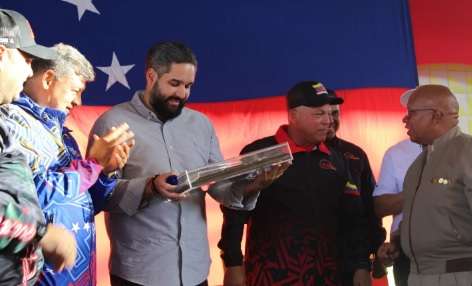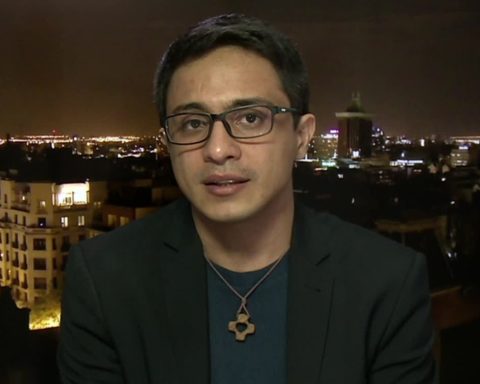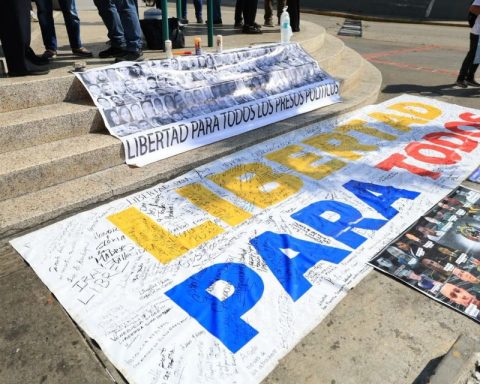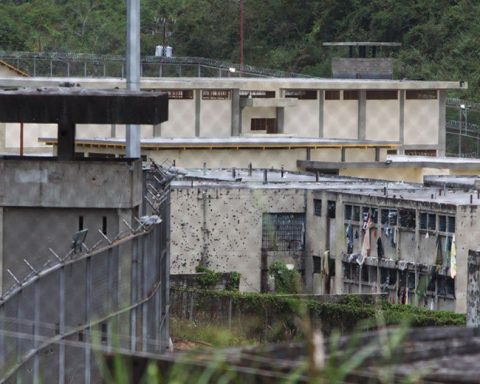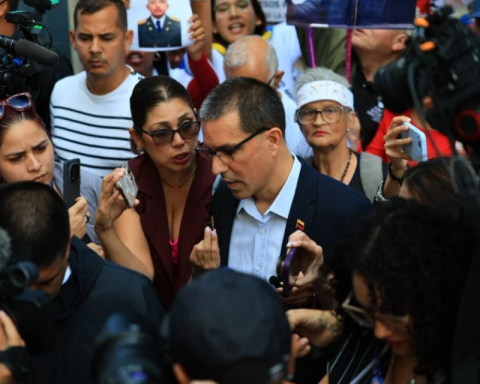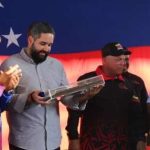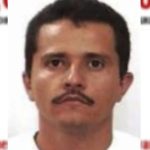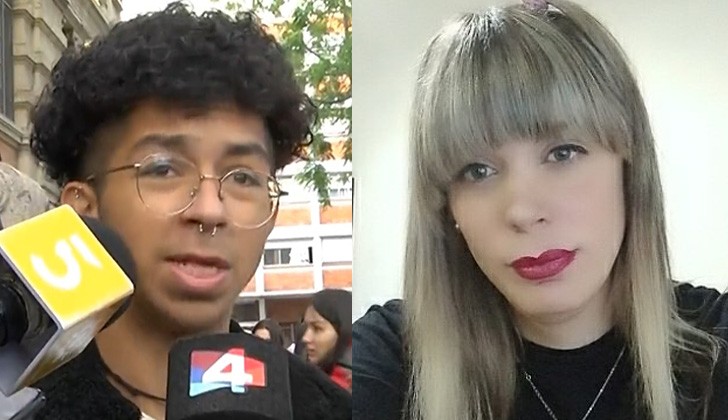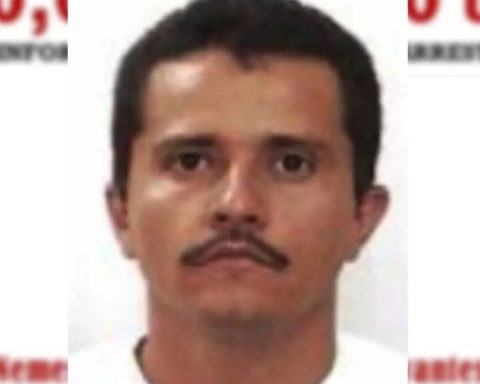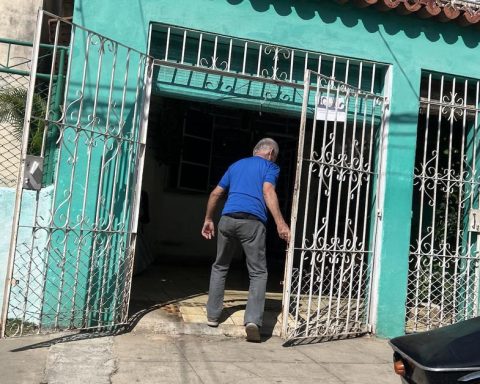The issue of Venezuela’s claim to the Essequibo territory once again captured national attention after the ruling issued on April 6 by the International Court of Justice in which it validated the arguments put forward by the Venezuelan State on November 17, 2022 and recognized that the illegal and fraudulent conduct of the United Kingdom can be reviewed in the Paris Arbitration Award of 1899 and, in addition, made clear the existence and validity of the Geneva Agreement of 1966.
Unanimously, the national public opinion has pronounced itself categorically ratifying that Guayana Esequiba belongs to us by history and by law and has supported the actions of the government of President Nicolás Maduro, in order to exhaust the resources so that a sentence is handed down. favorably and/or a satisfactory agreement is reached with the neighboring country, allowing the recovery of the almost 160,000 kilometers that the British Empire illegally appropriated.
Beyond the obligatory debate on the political and legal scenarios that are presented to Venezuela from the ICJ decision, it is necessary to recap on the way in which the English occupied the Essequibo, not only in one, but in several historical moments. , despite the fact that this region belongs to Venezuela since time immemorial.
dispossession after dispossession
In the year 1777, the Spanish empire created the General Captaincy of Venezuela through the Royal Decree of King Carlos III, which meant an administrative act to unify several provinces that remained separated politically, economically and military. 34 years later, on July 5, 1811, the people of Venezuela and their patriotic government sign the Act of Independence from the Spanish crown, after a long war of liberation. Obviously, appealing to the legal principle known as Utis Possidetis Juris (‘as you possess according to the law, so you will possess’), the new Republic of Venezuela inherited all the territory that belonged to the former General Captaincy, and the river was established. Essequibo as eastern border.
The Dutch controlled most of the area currently occupied by the republics of Guyana and Suriname. However, in 1814, at the end of the Napoleonic Wars, Great Britain forced Holland (now the Netherlands) to cede its territory west of the Corentyne River. The Treaty of London, signed on August 13 of that year, obliges the Netherlands to cede its possessions in Demerara, Essequibo and Berbice.
For this reason, when Simón Bolívar proclaimed Gran Colombia with the signing of the Constitution in the Congress of Cúcuta, in 1821, it was before Great Britain that the new Republic was forced to protest the continuous invasions of English colonists into Venezuelan territory. delimited in the Essequibo river.
Article 6 of that Constitution states that “The territory of Colombia is the same as that which comprised the former Viceroyalty of New Granada and the General Captaincy of Venezuela.”
Surreptitiously, British settlers cross the Essequibo River and occupy land on the lower coast of Moruca and Pomeroon. Immediately, in the year 1822, Simón Bolívar protested energetically and issued the following proclamation: “It is absolutely essential that said colonists either place themselves under the protection and obedience of our laws, or that they retire to their former possessions.”
Later, in 1825, the Great Britain Empire recognized the independence of Gran Colombia and Guayana Esequiba as an integral part of the new Republic.
Then, in 1830, with the separation of Venezuela from Gran Colombia, the country establishes in article 5 of its new Constitution, that: “The territory of Venezuela includes everything that before the political transformation of 1810 was called Captaincy General of Venezuela”, leaving this as reliable proof of the sovereignty of Venezuela over the Essequiba region.
The infamous Schomburgk Line
However, this recognition by the British Empire, in 1835, the English government sends Robert Hermann Schomburgk, a botanist and explorer, to draw up a map of the area, without consulting the Government of Venezuela.
Schomburgk arbitrarily draws a line to the west of the Essequibo River as the new border of the then British colony with Venezuela, a map that a few years later, in 1840, Schomburgk himself modifies, drawing a second line, which is published in London in a map from which British Guiana intends to annex 141,939 square kilometers.
The second Schomburgk line was so long that it reached the mouth of the Orinoco River.
This situation caused, in 1841, that the Venezuelan minister Alejo Fortique demanded that the British Government remove the posts placed at the points established by the second Schomburgk line, before which the British Government removed the arbitrarily established demarcations or milestones, thus recognizing Venezuelan sovereignty.
Finally, in 1850, Great Britain and Venezuela sign an agreement in which they undertake not to occupy the disputed territory between the second Schomburgk line of 1840 and the Essequibo River.
Such agreement established that both governments agreed not to “use force to occupy the land that each party claims.”
The gold rush fuels the invasion
Henceforth, a passive position on the part of Venezuela, coupled with the political crisis that exploded from 1858, served as an excuse for the English settlers to pounce on the Guayanese jungle, especially in the Yuruari basin, in search of rich people. gold deposits and in fact occupy a territory much larger than that established by the Schomburgk Line.
Parallel to the invasion, the British tried to create an autonomist movement in Venezuelan Guiana, based in Ciudad Bolívar, and incorporate it into British Guiana.
A decade later, in 1861, in the midst of the Federal War, former President Pedro Gual, at the head of a group of Venezuelan oligarchs, requested the British Empire to intervene as guardian of the Venezuelan territory, taking the territory of Guyana as payment for the debts acquired. , in effect requesting the invasion of his own homeland.
Disregarding the agreements, throughout the 19th century the British continued to move the Schomburgk line, increasing the imperial annexation by 25,000 square kilometers, which already totaled 203,310 km2.
The gold rush took on an extraordinary boom, to the point that large companies representing not only English, but French, German and American capitals settled in the region and practically made that territory their own.
This situation led the then president, Antonio Guzmán Blanco, who also had interests in gold mining, with direct rights in several concessions, to take the initiative to break relations with the British Government in 1877, after several attempts -in addition- to reach a agreement with the crown
Appointed as Extraordinary Envoy and Plenipotentiary Minister of Venezuela before several European courts, Guzmán Blanco decides before settling in London, to make a first and very strategic stop in the United States, to expose before the highest authorities of the government, in this case the Secretary of State, Frederick J. Frelinghuysen, “aspects of the controversy between Venezuela and England and request the friendly mediation of the United States.” Only then will the British, under US pressure, agree to go to arbitration to resolve the situation.
United States and the Monroe Doctrine
In 1895, the United States intervened in the dispute appealing to its interests contained in the so-called Monroe Doctrine, which were opposed to the imperialist character of Great Britain.
The United States considers any territorial appropriation in America by European powers to be a threat to its interests. This is the application of the well-known Monroe Doctrine, in which the United States Government warns that Great Britain’s refusal to judicially examine its titles would amount to appropriation.
On the contrary, the United States was in opposition to its emblematic proclamation and that is how in 1897 a new negotiation attempt arose with the signing on February 2 of the Washington Treaty, through which the arbitral tribunal would be constituted that would have to decide the border dispute between England and Venezuela.
Under pressure from the United States and Great Britain, Venezuela, under disadvantageous conditions, is forced to accept an unfair arbitration, which stipulates that no Venezuelan will be part of the Arbitration Commission, Venezuela being represented by two Americans, while two Englishmen will represent the British part. . The fifth referee will be a Russian, a personal friend of the Queen of England.
The terms imposed on Venezuela in that arbitration express the enormous weakness of the country at that time, in addition to the fact that the Americans have never taken Venezuela’s interests into account.
The Arbitral Award of 1899. The Arbitral Award of Paris of 1899 constituted the darkest point in the legitimate claim of Venezuela to assert its sovereignty over Guayana Esequiba.
This agreement violates the arbitration rules that were to govern its decision, established in the Washington Treaty of 1897.
It was a decision imposed under duress by the two great empires of the time. The arbitrators decide to strip Venezuela of 90% of its Essequibo territory, through a compromise that would be discovered years later.
In 1949, the fraud of the Paris Arbitration Award was confirmed, with the publication of the Memorandum by Severo Mallet-Prevost (a lawyer who intervened for the United States in the Parisian Award) in which he revealed the true negotiation that took place behind the scenes between the arbitrators who they made it up
This document, published after the death of Mallet-Prevost, states that said award was nothing more than a political compromise, rampantly increasing the scandal of the injustice committed.
In this atmosphere of repudiation against the United Kingdom, Venezuela in the 1960s, demanded the annulment of the award before the Organization of American States and the United Nations Organization, receiving the support of the majority of nations, which It led England to seek alternatives to the situation, and in the search for a conciliation, the Geneva Agreement of 1966 was born, as a way of resolving the issue diplomatically.
Therefore, the recognition by Great Britain and later by Guyana of the irregularities of the Award is considered implicit.

